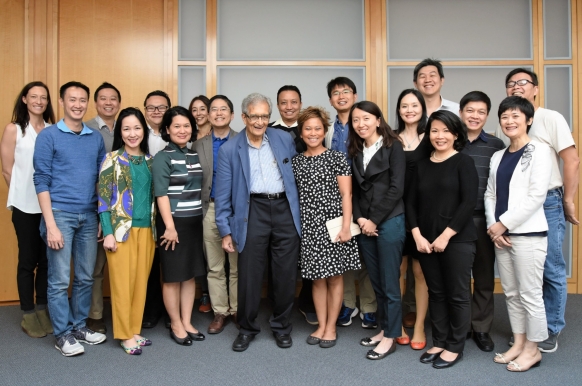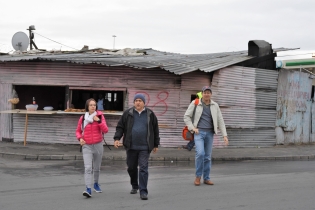Global Learning for Equity Fellows

The Equity Initiative’s Inaugural Fellows traveled for their global learning trip to Boston, USA and Cape Town, South Africa July 4-19, 2016. The two weeks of intensive travel linked the Fellows to world-class scholars and inspirational activists to deepen learning about equity values and interventions. The event furthered peer learning and exposed them to leadership competencies in two different cultural and historical contexts beyond Southeast Asia.
In Boston, the Fellows, based in the Adams House dormitory, spent a week with world-leading Harvard and MIT faculty on such topics as health equity (health and human rights, social justice, health systems, suffering and caregiving, poverty, and workers in the informal economy) and adaptive leadership (stakeholder analysis, negotiations and consensus building, and interpersonal competencies). Outstanding faculty shared personal and inspirational work/life stories of triumphs, failures, and lessons learned. In addition to academic sessions, the Fellows’ weeklong residency at Harvard included a visit to Cambridge Health Alliance to learn about innovative community-based services for marginalized populations.
In Cape Town, the Fellows learned about the political history of South Africa through dialogue with influential educators, development and public health specialists, and social justice leaders, as well as leaders from advocacy groups including Equal Education, Health e-News, Social Justice Coalition, and Treatment Action Campaign. Fellows were further exposed to South Africa’s particular social and political conditions through site visits to Cape Town’s Slave Lodge social history museum, a Khayelitsha township government medical center, and a tour of the Robben Island Prison.
Together the Boston and Cape Town experiences provided an opportunity for the Fellows to become exposed to diverse perspectives and expertise and participate in dialogue and exchange across disciplines, cultures, and geographies.

